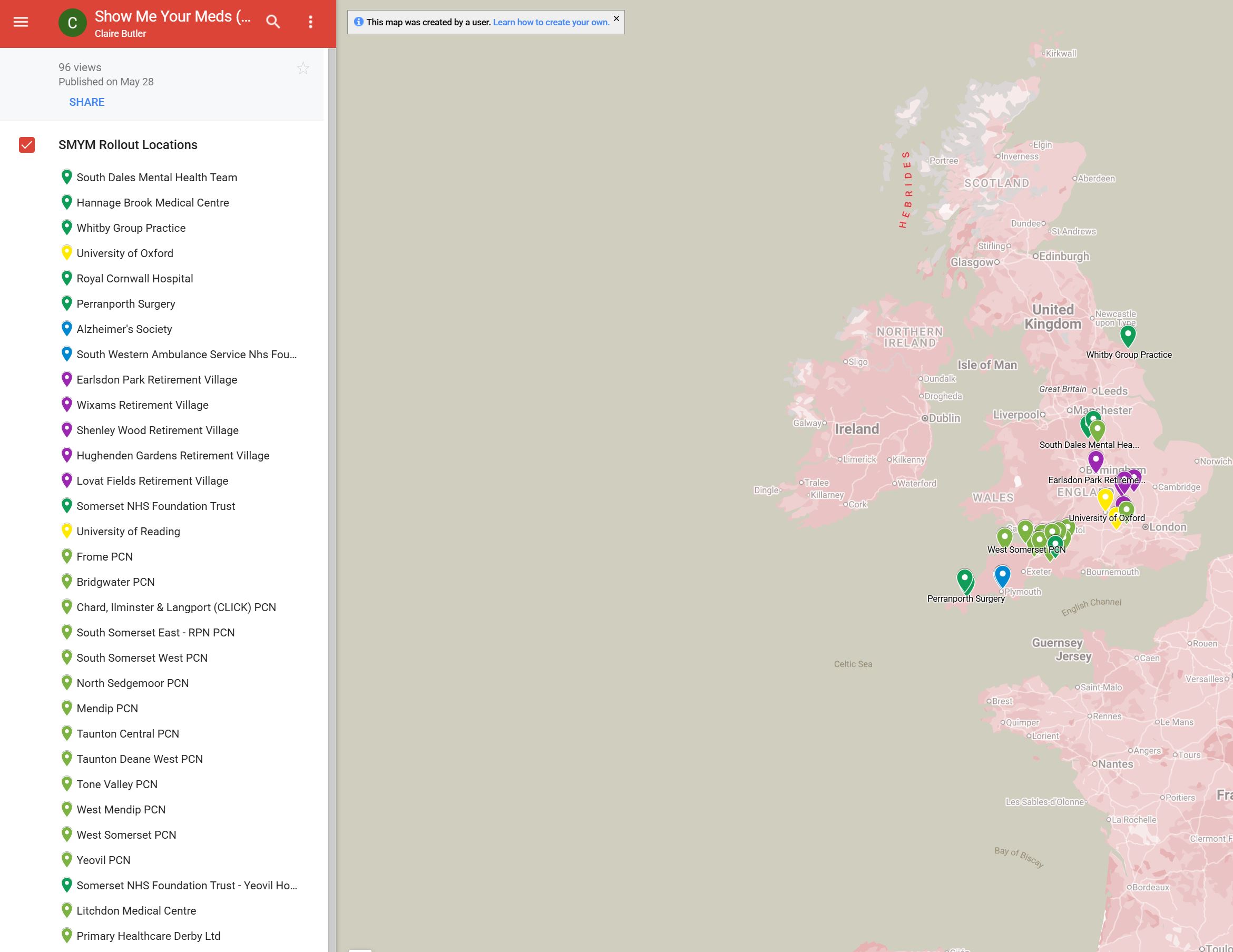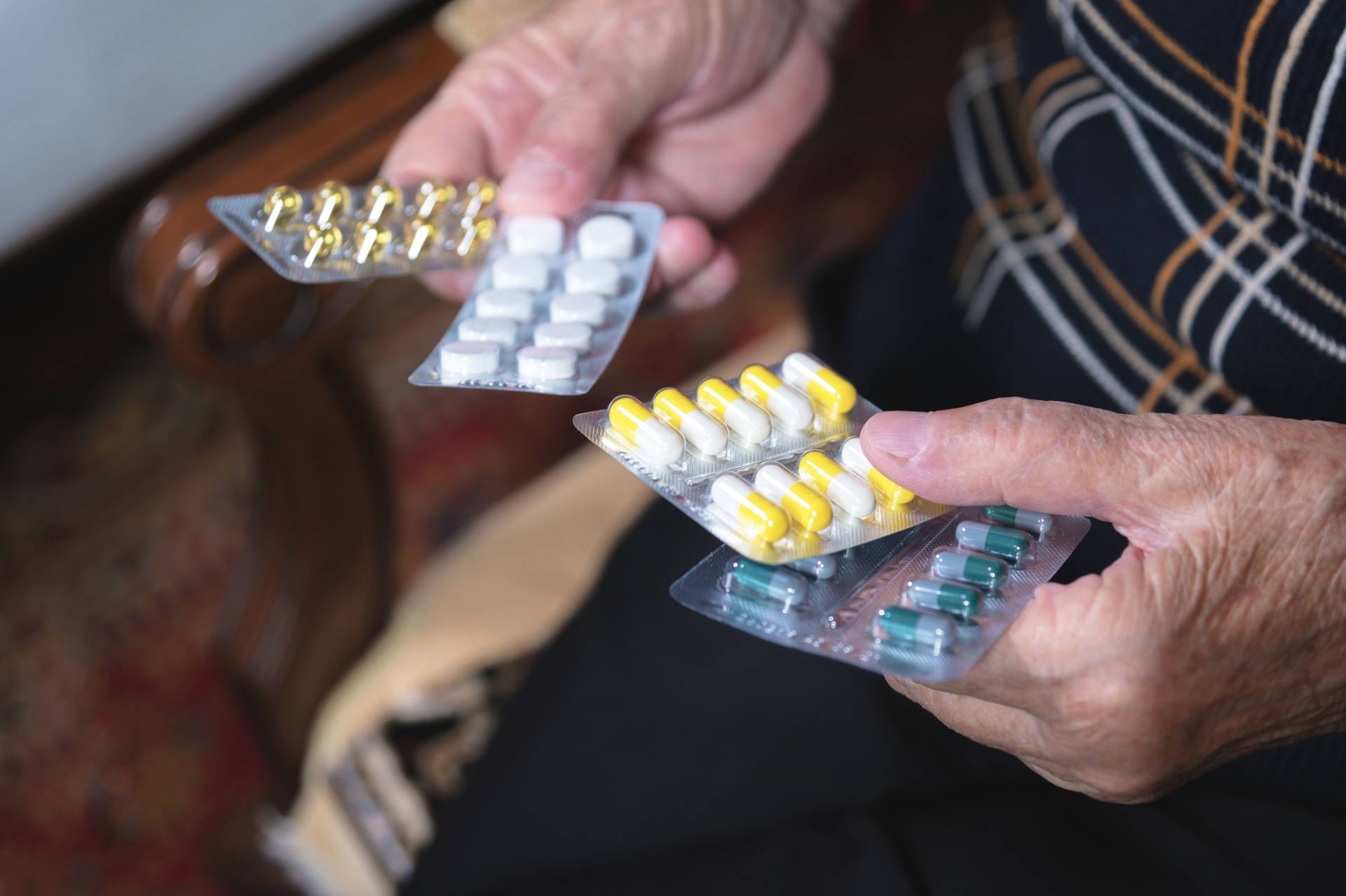Organisation
Show Me Your Meds Please (SMYM), Somerset NHS Foundation Trust
Project Lead
Deborah Gompertz, Complex Care GP, Somerset Foundation Trust, and Victoria Welsh, Head of Profession Physiotherapy and Bid Lead and Innovation Discovery Manager at NHS Trust
The Challenge
NHS England estimates that medicines account for 25% of NHS carbon emissions. The Department of Health estimates that unused medicines cost the NHS £300 million a year - £110 million of medicines returned to pharmacies and 90 million unused prescriptions stored in people’s homes. This doesn’t measure the individual or economic impact of untreated long-term conditions, or the risks from taking medication incorrectly. The biggest waste of medicines are those that are never taken. Furthermore, appropriate prescribing decisions cannot be made without knowledge of the actual medications that a patient is taking.
The Innovation
A simple screening question, “Show me your meds, please?”, used during routine home visits by community staff has been demonstrated to provide the opportunity for a significant reduction in medicines waste, with subsequent environmental and cost saving benefits, along with improved individualised patient care. The widely accepted “structured medication review” does not currently include the physical act of looking at someone’s medication in their home.
The approach can be undertaken by anyone but may include GPs, pharmacists, occupational therapists, physiotherapists, paramedics and nurses.
Asking the screening question helps pick up patients who may not be taking their medications as prescribed e.g. Stockpiled meds, unused or out of date medication, or patient uncertainty over how they are taken. This then needs appropriate onward referral or follow up. Additionally, arrangements need to be made to return excess medications to the pharmacy for disposal.
Impact
A series of pilots has demonstrated positive outcomes in detecting non-adherence and targeting patient-centred interventions, leading to simplification of medication regimes, referral to social support and large cost and environmental savings. The approach has been successfully piloted in multiple clinical settings such as community services, residential care and acute sites.
For instance, during a three-month pilot at a Primary Care Network in South Somerset, Show Me Your Meds identified 40 patients who were not adhering to their prescribed medication regime; this accounted for 1 in every 4 people assessed (25%).
Overall, Show Me Your Meds identified 1,049 individual months of unused prescription items and the total amount of wasted medication was valued at £10,866. It is estimated that every pound spent on pharmaceuticals generates greenhouse gas emissions of 0.1558kg CO2; therefore, these wasted medicines represent 1,693kg of avoidable CO2 emissions. During the pilot, 39 medicines were stopped, providing a predicted cost saving over the next 12 months of £3,529 and 549kg CO2 emissions prevented.
In more than 50% of cases, medication regimes were simplified. e.g. Reducing a patient’s medication from three times a day to twice a day, or if the person needed care to prompt the medication, structuring their regime around care visits.
Scaling across Somerset ICS, based on a population size of 571,600, savings are estimated to be:
-
68,396 individual months' medication
-
110,596 kg CO2 over 12 months
-
£720,260 cost savings
Having implemented Show Me Your Meds (SMYM) across the system in Somerset, SMYM has started to expand to other areas across the UK.
The toolkit has been developed and evaluated to ensure it is meeting the needs of adoption sites and continues to be adapted.
Scale of Show Me Your Meds to date [Google map]:

Date Published
June 2025

